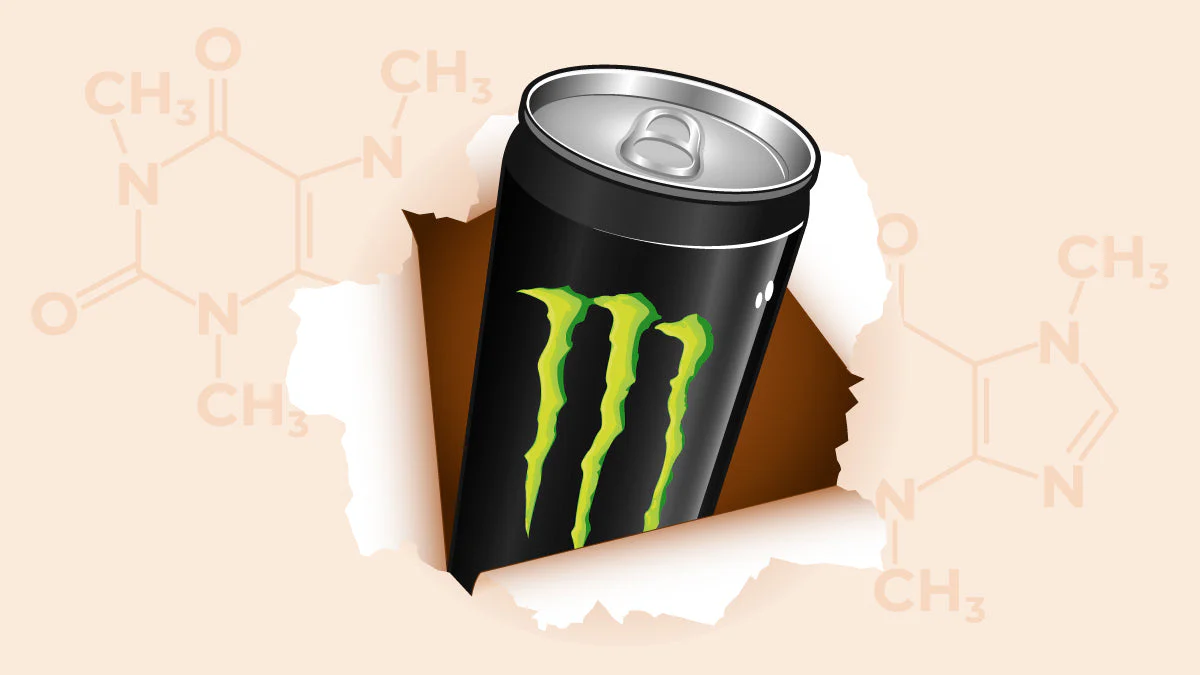Monster Energy is one of the most popular energy drinks worldwide, often chosen by students, professionals, and athletes who want an extra boost of focus and energy. But one of the most common questions consumers ask is how much caffeine is in Monster? Since caffeine is the primary stimulant that gives Monster its kick, knowing the exact amount helps people make healthier choices. Understanding how it works in the body, how it compares with coffee, and what the potential health effects are is just as important as the number on the can.
The Role of Caffeine in Energy Drinks
Caffeine acts as a natural stimulant for the central nervous system, temporarily warding off drowsiness and increasing alertness. Monster relies heavily on it, combined with sugar, taurine, and other ingredients, to create its powerful effect. For people wondering how much caffeine is in Monster, the answer varies depending on the size and type of drink, but on average, one standard 16-ounce can contains around 160 milligrams of caffeine.
Different Monster Variants and Their Caffeine Levels
Monster offers a wide range of flavors and product lines, each with slightly different caffeine contents. Here’s a closer look at some popular options:
- Original Monster (16 oz): ~160 mg of caffeine
- Monster Zero Ultra (16 oz): ~140 mg of caffeine
- Monster Energy Lo-Carb (16 oz): ~140 mg of caffeine
- Monster Mega (24 oz): ~240 mg of caffeine
- Java Monster (15 oz): ~200 mg of caffeine
- Monster Espresso (6.75 oz): ~150 mg of caffeine
These variations highlight that asking how much caffeine is in Monster depends on which version you choose. A large can may deliver nearly twice the caffeine of a smaller one.
Comparing Monster to Coffee and Other Beverages
Most people are familiar with coffee as their daily caffeine source. On average, an 8-ounce cup of coffee contains about 95 mg of caffeine. This means that a single 16-ounce Monster has nearly double the caffeine of a typical coffee. However, coffee drinkers often consume larger cups, making the comparison tricky. Still, Monster delivers its caffeine in one concentrated serving, combined with sugar and additives that can intensify its stimulating effect.
By comparison:
- Green tea (8 oz): 30–40 mg
- Black tea (8 oz): 40–50 mg
- Cola (12 oz): ~35 mg
- Espresso (1 oz): ~63 mg
This makes Monster one of the stronger mainstream beverages on the market.
How Much Caffeine Is Too Much?
Health experts generally recommend limiting caffeine intake to 400 mg per day for most adults. Consuming more than this may increase the risk of jitteriness, rapid heartbeat, insomnia, headaches, and even digestive issues. Considering a single can of Monster has 160–240 mg, just two cans could push someone close to or above the daily limit. For teens and younger adults, the safe intake is even lower, which is why doctors caution against regular consumption of highly caffeinated energy drinks.
Why Monster Feels Stronger Than Coffee
While the caffeine amount partly explains the impact, Monster’s energy boost also comes from its mix of sugar, taurine, guarana, and B vitamins. Sugar adds a quick energy spike, while guarana contains additional caffeine, sometimes unlisted on the label. This combination can create a more powerful surge compared to coffee, even when caffeine levels appear similar.
Safe Ways to Enjoy Monster
For those who enjoy the taste and kick of Monster, moderation is key. To safely manage caffeine intake, consider:
- Limiting consumption to one can per day
- Choosing lower-caffeine variants like Monster Zero Ultra
- Avoiding Monster late in the evening to prevent sleep problems
- Balancing with water to stay hydrated
- Monitoring sugar intake, as some cans contain more than 50 grams
Knowing how much caffeine is in Monster allows you to enjoy it without overdoing it.
The Impact of Monster on Different People
Not everyone reacts to caffeine the same way. Factors such as age, weight, metabolism, and tolerance play a role. A person who drinks coffee daily may not feel overly stimulated by a can of Monster, while someone with low caffeine tolerance could feel restless after just a few sips. Pregnant women, individuals with heart conditions, or those sensitive to stimulants should be especially cautious.
Monster Energy and Exercise
Some people use Monster as a pre-workout drink because of its stimulating effect. While caffeine can improve endurance, focus, and reaction time, the high sugar content may cause a crash mid-exercise. Alternatives like black coffee or specially designed pre-workout supplements may be more effective without the added calories and sugar.
Alternatives to Monster for Energy
If you’re worried about how much caffeine is in Monster but still want an energy boost, there are other options:
- Black coffee or espresso for a calorie-free caffeine source
- Green tea for a mild boost plus antioxidants
- Yerba mate for a natural caffeine source with smoother energy
- Sparkling water with caffeine for hydration plus alertness
These can provide focus and energy without the sugar overload.
Final Thoughts
Understanding how much caffeine is in Monster is essential for anyone who drinks energy drinks regularly. With 140–240 mg per can depending on the variant, Monster delivers a strong kick that rivals and sometimes surpasses coffee. While it can be enjoyed in moderation, regular heavy consumption may lead to health risks, particularly for younger people and those sensitive to caffeine. Making informed choices about caffeine intake can help you enjoy the benefits without negative side effects.
Clearing Up Confusion – FAQs
Is Monster stronger than coffee?
Yes, a standard Monster has more caffeine than a small cup of coffee, plus added ingredients that intensify its effect.
Can I drink two Monsters in one day?
It’s possible, but not recommended, as it may push you over the daily safe caffeine limit of 400 mg.
Does Monster have more caffeine than Red Bull?
Yes. A 16-ounce Monster has about 160 mg of caffeine, while a 12-ounce Red Bull has around 111 mg.
Is sugar-free Monster safer?
Sugar-free versions reduce calories and sugar intake, but they still contain high caffeine levels and should be consumed in moderation.
At what age is it safe to drink Monster?
Health experts generally advise that children and teens avoid energy drinks due to their high caffeine and stimulant content.

